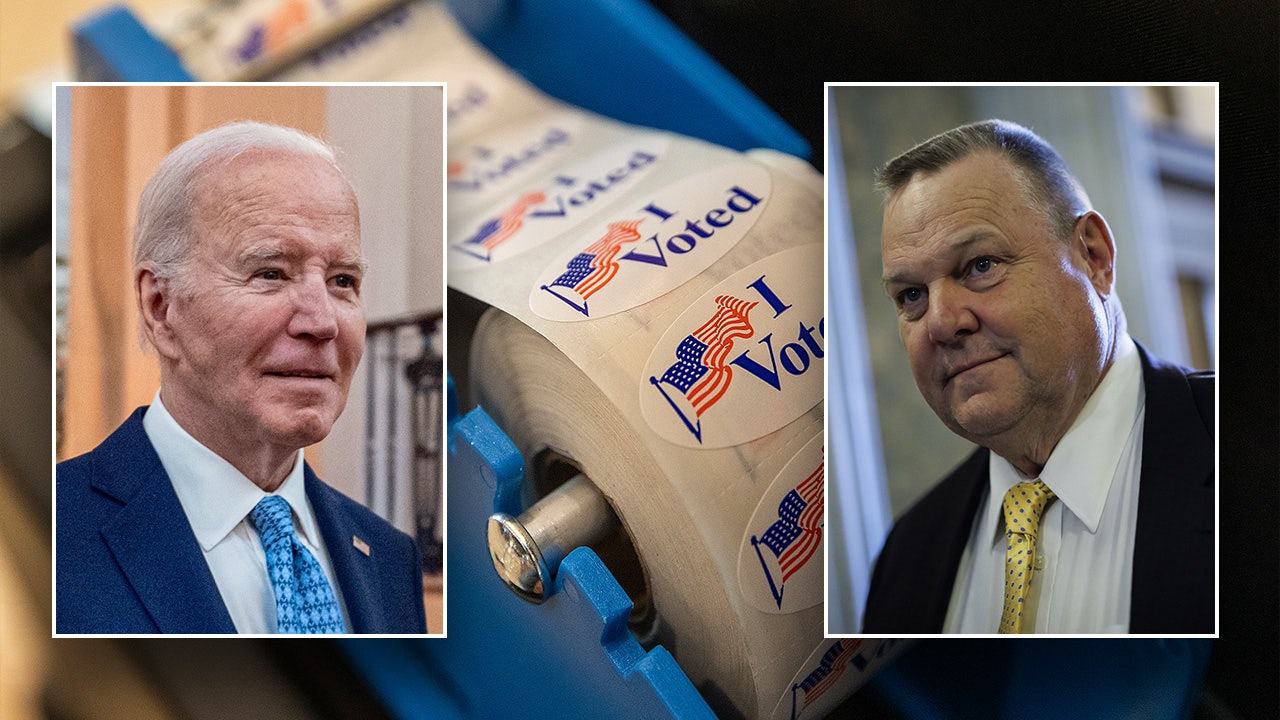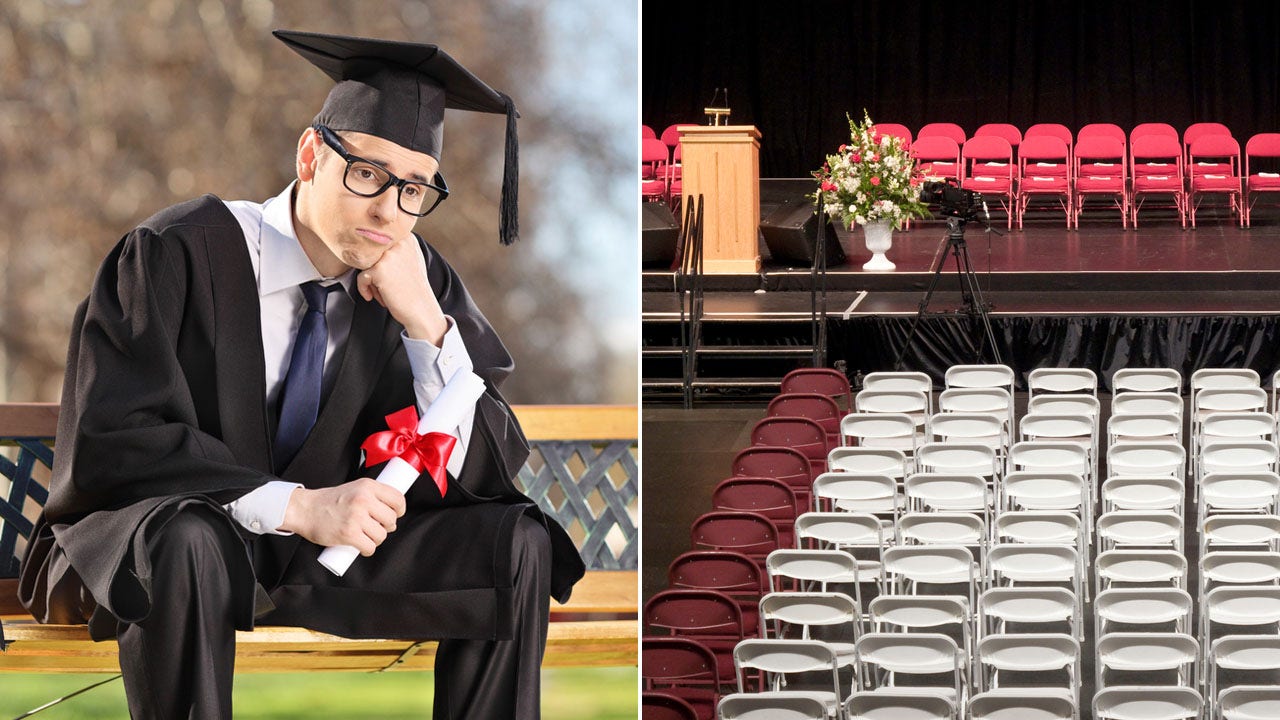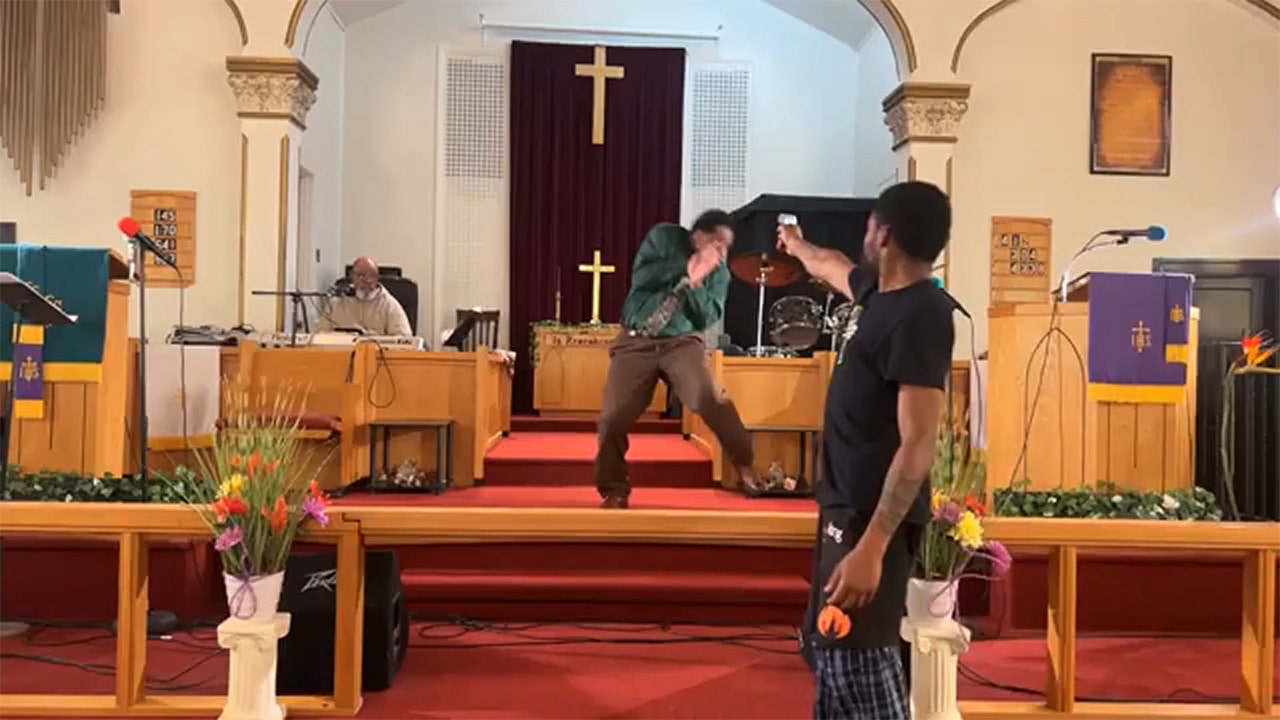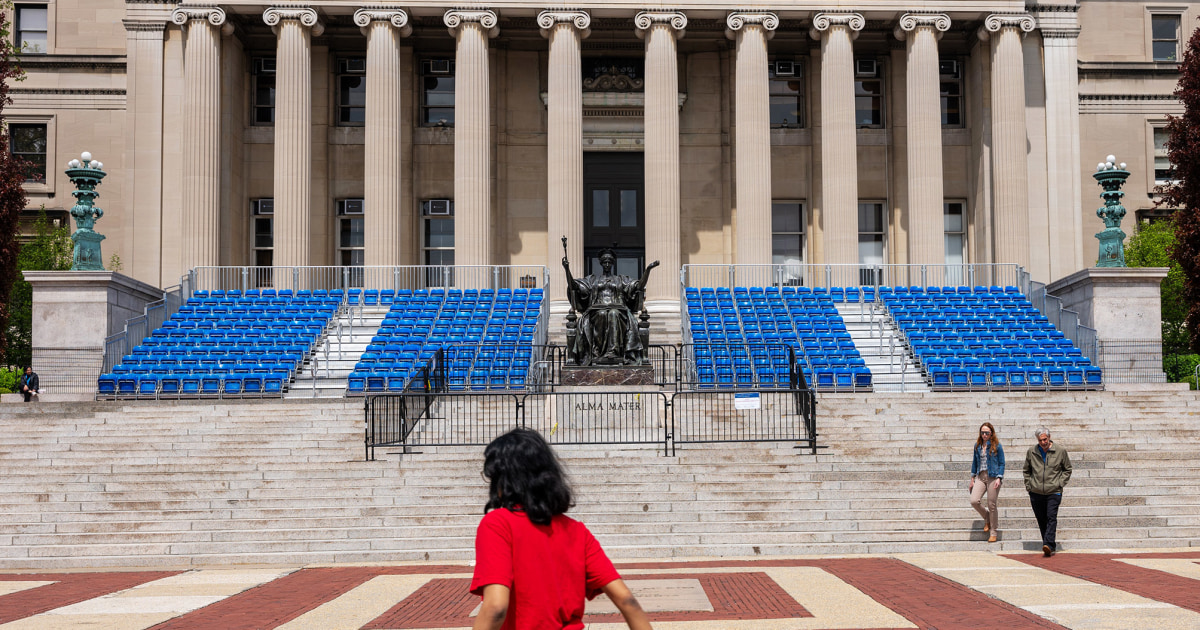Columbia’s announcement Monday that it was canceling next week’s universitywide commencement ceremony in favor of small-scale celebrations was met with disappointment from seniors and their families, upending plans that a tumultuous schoolyear could be salvaged with the normalcy of a time-honored tradition.
Pro-Palestinian demonstrations over Israel’s war in Gaza bookended seniors’ final academic year at the Ivy League institution’s upper Manhattan campus, where a tent encampent on the lawn and occupation of Hamilton Hall, an administration building, resulted in scores of arrests and concerns over safety.
“It’s been a tough time — I think it’s been demoralizing,” said graduating senior Alexis Ishmael. “Campus morale is so low. It’s just sad.”
Ishmael said she and her parents had to “make their peace” that a typical commencement ceremony at Columbia, which dates to 1758, when the school was known as King’s College, would potentially not occur because of fraught security issues.
But still, she said, she held out hope. She recalled another Columbia commencement ceremony nine years ago that grabbed headlines when a senior graduated with a mattress in tow — to bring awareness to sexual assault on campus.
“I think we are going to be remembered as a really interesting class at Columbia. Came in at a hard time,” Ismael said, referring to the beginning of the Covid-19 pandemic in which students had to grapple with mask mandates, virtual learning and health struggles, and now, “leaving at a hard time.”
University officials said they did not want to cancel graduation ceremonies entirely, and each school at Columbia already holds their own smaller graduations in addition to the main one in which the school’s president officially confers degrees. The university had planned to host two ceremonies May 15 — one in the morning and another in the evening — to accomodate the 15,000 graduates.
Instead, students will be “honored individually alongside their peers” in the smaller ceremonies. “Class Days” and school ceremonies scheduled at the campus’ south lawn have also been relocated to an athletics complex.
“These past few weeks have been incredibly difficult for our community. Just as we are focused on making our graduation experience truly special, we continue to solicit student feedback and are looking at the possibility of a festive event on May 15 to take the place of the large, formal ceremony,” university officials said.
Morgan Malcolm, a graduating senior at Barnard College, said her relatives purchased flights from California and Colorado nine months ago to attend the university-wide ceremony.
Monday’s announcement felt like a terrible case of deja vu, she said, after her 2020 high school graduation was canceled because of covid.
“That it’s happening again just feels like tremendous bad luck,” she said, adding that her family hopes to at least hold a brunch in her honor when they arrive in New York. “It’s clear we’re not a priority for the university.”
Barnard College, which is part of the larger Columbia University system, will host a smaller commencement ceremony later this month.
Other colleges in the U.S. are rethinking their graduation ceremonies as they deal with similar campus unrest over the conflict in Gaza, which has played out with protester arrests and demands for schools to divest their endowments from companies accused of profiting from the war.
Last month, the University of Southern California in Los Angeles said it was canceling its main commencement ceremony. Emory University in Atlanta said Monday it was moving its May 13 ceremony to an indoor complex off-campus because of “concerns about safety and security.”
Marla Feinstein, whose son is graduating from Columbia, said the loss of a universitywide commencement — in which thousands of graduates in light blue robes would be surrounded by the campus’ stately buildings — is hard to accept for parents.
“It matters because a lot of people like myself are first generation,” Feinstein said. “You want the picturesque background, and then to have it taken away, it’s not the same.”
Her son and others in the Class of 2024 began their college careers without a traditional high school graduation because of the pandemic. Now, to see one of life’s major milestones taken from them again feels like there’s no closure, she added.



